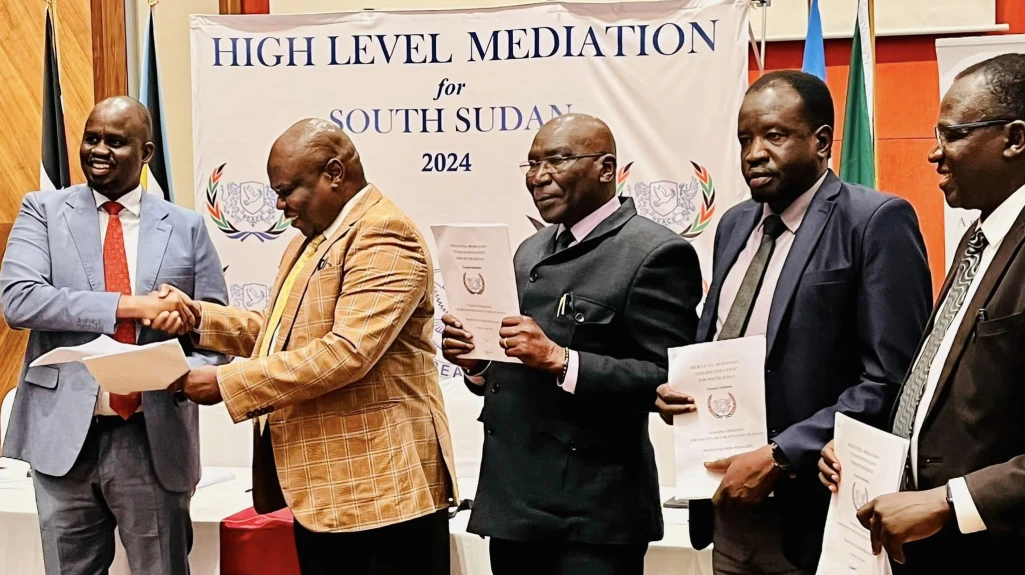
In order to facilitate the peace process, the delegates of
the Tumaini Initiative have settled on eight protocols.
These comprise general guidelines for interpreting and
implementing the promises made during the Nairobi peace talks.
Others are on humanitarian access and support; trust- and
confidence-building measures; and permanent ceasefire, security arrangements,
and reforms.
“The parties commit to the reform and reorganization of the
security sector in order to create unified professional national forces that
include the armed opposition groups,” it reads in parts.
Several reports suggest that the army in South Sudan is
unprofessional, with some soldiers aligning themselves with individual
political leaders, especially fellow tribesmen.
This, according to observers, has fueled the conflicts,
especially the December 2013 civil war and the renewed violence in July 2016.
The delegates and mediation team also initialed the protocol
on communal conflicts, armed civilians, and land disputes.
Apart from the polarization of the communities by
politicians, land disputes have cost lives in the county.
This is exacerbated by the proliferation of firearms in the
hands of civilians.
“The parties and the stakeholders agree that the government,
through public participation, shall identify the root causes of communal
conflicts and violence and land disputes and provide solutions so as to
contribute to overall peace and stability in South Sudan,” it continues.
The delegates also initialed the protocol on guarantors –
internal and external guarantors, who shall guarantee and take the lead in the
implementation of the Tumaini Consensus.
This includes the creation of the National Leadership
Council (NLC), which is responsible for providing political stewardship and
oversight in the implementation of the Tumaini Consensus.
“NLC shall preside over and resolve disputes and conflicts
in matters related to the implantation of the Tumaini Consensus,” it
stipulates.
Amb. Albino Mathom, Gen. Pa'gan Amum, Gen. Paul Malong, Gen.
Stephen Buay, Gen. Mario Loku, and Dr. Pauline Riek initialed the Tumaini
Consensus for Sustainable Peace in South Sudan on July 15.
These individuals represent the South Sudan government,
Real-SPLM, the South Sudan United Front, the South Sudan People's Movement, the
National Salvation Front, and Academia, respectively.
Others included representatives of faith-based groups,
youth, women, IGAD, the Kenyan government, and the chief mediator, Gen. Lazaro
Sumbeiywo.
Launched on May 9, 2024, the Tumaini Initiative brings together the holdout groups and the government of South Sudan to forge a way forward. "Tumaini" is Swahili for hope.